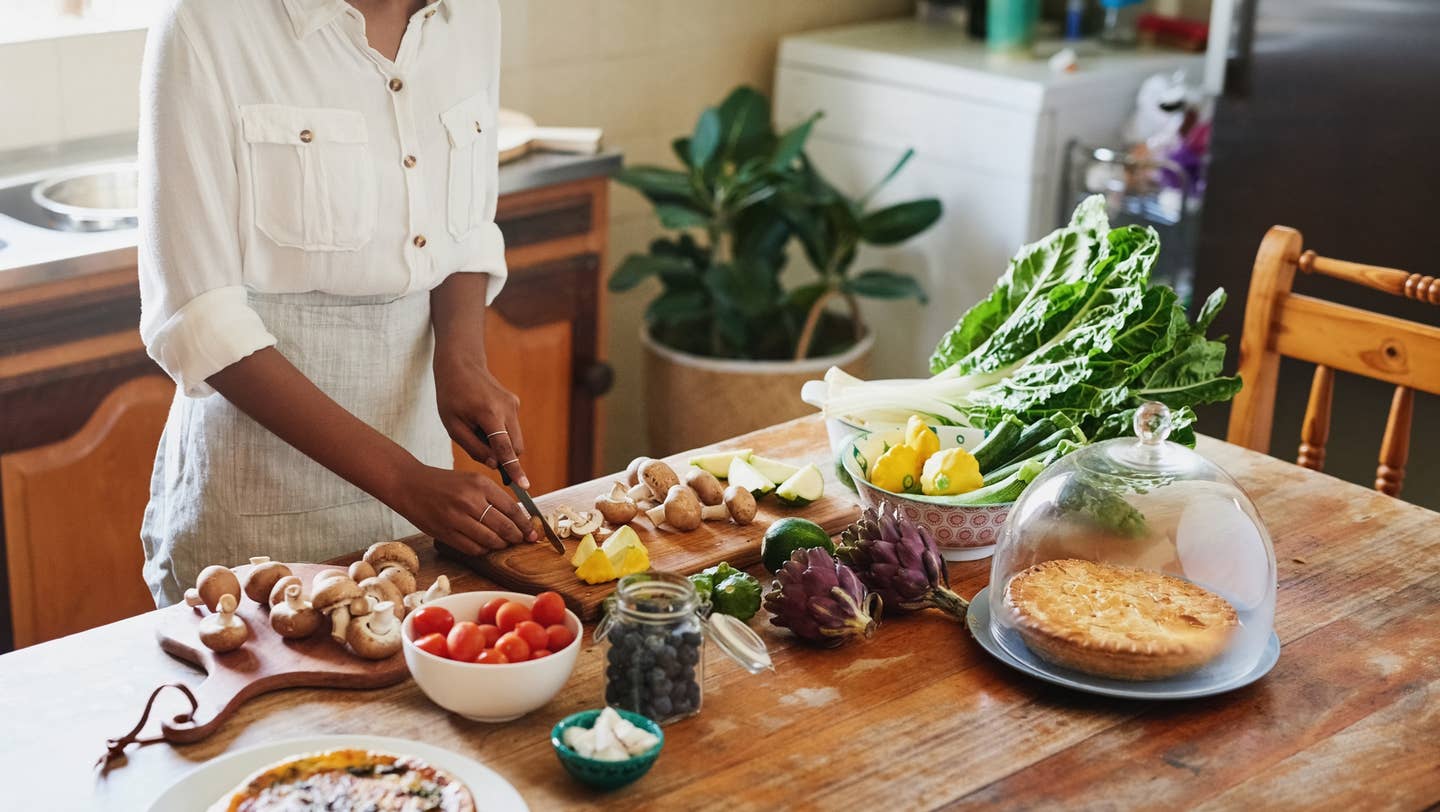
5 Nutritionist Tips to Get Back on Track with a Vegan Diet After Quarantine
The first matter of business once quarantine ends: Doing everything we can to express our gratitude for essential and health care workers. Can you hear us cheering our thanks from miles away? We thought so.
When life in America slowly makes its transition to normal, many of us are looking forward to that divine vegan Caesar salad at our favorite plant-based joint. Needless to say, we’ve also never been so excited to grocery shop—vegan mayo, fresh veggies galore, and our favorite tempeh sausages, here we come. Amidst coronavirus-related restrictions, grocery store shortages, and through-the-roof stress, we’ll be the first to admit: It can sometimes be hard to stick to a whole foods plant-based diet. But as we plan for the eventual loosening of stay-at-home orders, now’s the ideal time to focus on how we can use this moment to jumpstart our vegan diet. To that point, we tapped plant-forward nutritionists to share their best advice for getting back aboard the vegan bandwagon. Below, their top tips.
1. Restock your pantry.
Whether you’re adopting the plant-based lifestyle for the first time or looking to return to it after a bit of a quarantini and pizza hiatus, meal planning is key to staying the course. “Chances are you are out of a lot of staple vegan foods as these simply may have not been available in the grocery stores. Many popular vegan items that are hard to find right now are beans, quinoa, rice, seeds, nuts, and canned goods like tomato sauce and coconut milk,” offers Shena Jaramillo MS, RD. “Do a grocery run and focus on staples first. This can help get you motivated for future vegan meal prep.
2. Make one plant-based goal per day or week, and stick to it.
“Over the last several months if you have fallen off the vegan bandwagon your cooking and eating behaviors have likely shifted drastically,” notes Jaramillo. “Even one small behavior is difficult to change. Give yourself grace and start by doing something simple like one vegan meal per day or batch cooking some vegan goodies to add through the week.” Whether it’s practicing Meatless Monday or making a plant-based smoothie each day for breakfast, start with one simple, attainable, and, of course, tasty goal and evolve from there.
3. Proceed gradually back to a fully plant-based diet.
Piggybacking on the last tip, this is especially important to keep in mind if you veered far off course amid quarantine. “The extra fiber from consuming more vegetables, fruit, and legumes can cause gastrointestinal discomfort if you haven't been eating much of these during quarantine,” advises Trista K. Best, Registered Dietitian with Balance One.“I'd recommend starting with making one or two meals a day vegan until you're back to a fully vegan lifestyle over a week or two.”
4. Get creative replicating one of your favorite non-vegan meals.
Look, Rome wasn’t built in a day and neither was that Alicia Silverstone-worthy vegan glow. To make the diet overhaul more fun, turn dinner into a cooking challenge by researching and executing a beloved meal: “You can easily get back to where you were and want to be again. Try making one of your favorite non-vegan meals vegan by changing some of the ingredients, like tofu tacos instead of beef,” suggests Best. Some of our favorite vegan spins on a non-veg fare? Vegan French Toast, Harvest Kale Caesar Salad, and Vegan Mac and Cheese.
5. Refocus on your micronutrient intake.
When going vegan, there are certain nutrients that are particularly important to keep in mind as those adhering to a plant-based diet may be at risk of nutrient deficiencies in protein, B12, vitamin D, EPA, DHA, iron, zinc, and calcium. “I take a multivitamin daily, however, I know that I still must eat a diverse healthy diet, even if I’m taking a multivitamin,” notes Amanda A. Kostro Miller, RD, LDN, serves on the advisory board for Fitter Living, who stresses the importance of checking to ensure that multi is actually vegan as some can be made with animal products. (PSA: Here are six nutrients that nutritionists say vegans may consider taking.)
“Whether you are currently at risk for deficiency in certain nutrients or have been eating animal-based foods during quarantine, make sure you review your diet to make sure your post-quarantine diet will continue to give you all the proper nutrition that you need,” she continues. For some, it may be worthwhile to consult with a nutritionist or doctor to discuss your personal nutrition needs.
Did you fall off the vegan train during quarantine? Are you working towards getting back to a plant-based lifestyle or even embarking on the journey for the first time? We’d love to hear your tips for knocking the vegan frank out of the ballpark.
More From The Beet






